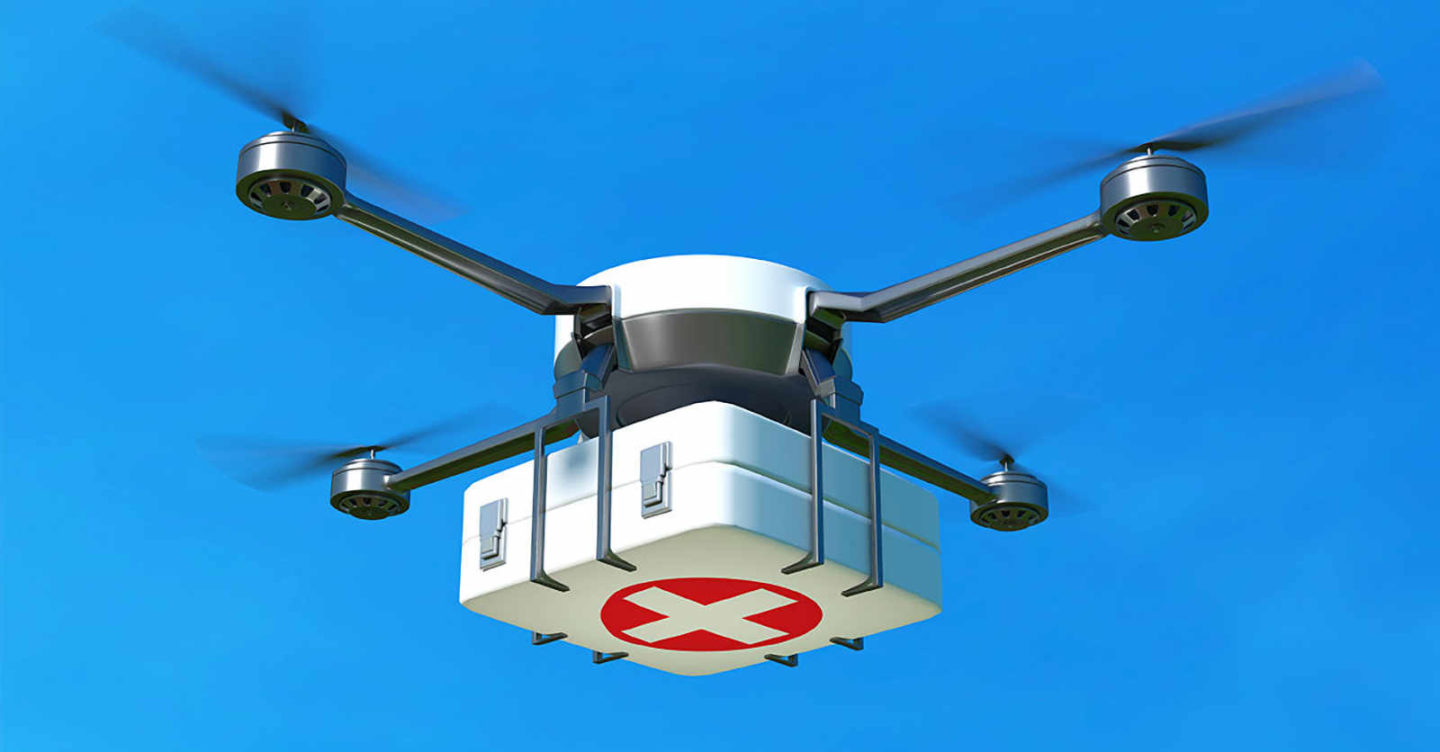
Amazing
Drones Deliver Lifesaving Equipment in Real-Time to Patients’ Homes
We’ve been hearing about the advent of machines and the significant roles they’ve been playing in many sectors. Many people have been fearful of robots coming into the health industry. Still, they have been proving useful in many ways, from making precise incisions to transporting life-saving medication and equipment.
Most recently, in Europe, an older man had his life saved due to quick action involving a drone that could reach his location in the nick of time.
A drone played a role in saving the life of a Swedish man. A drone defibrillator dropped on the scene saved the life of the 71-year-old man who went into cardiac arrest while clearing snow in December, according to an article published on Everdrone recently.
To save the life of a person who is having a heart attack, they require immediate assistance. With Emergency Medical Aerial Delivery from Tech giant Everdrone (EMADE) service, emergency dispatchers can deploy a drone with a device to a caller’s home, allowing them to begin the lifesaving procedure before paramedics arrive.
The defibrillator delivery to the patient’s house only took three minutes in this scenario. CPR was performed on the patient by a passerby, who happened to be a physician on his way to work. He then utilized the AED.
SOS Alarm, Region Västra Götaland, and the Karolinska Institutet’s Resuscitation Science Center helped create the drone.
As Everyone CEO Mats Sällström noted, “This is an excellent real-world illustration of how Everdrone’s state-of-the-art technology, strongly connected with emergency response, can reduce the delay for access to life-saving AED devices.”
There were 14 cardiac arrest warnings that drones could handle during a four-month trial of the EMADE program. The drones successfully delivered the defibrillators on 11 of the 12 occasions. The drones had supplied a total of seven such defibrillators before the arrival of the emergency vehicle.
Over 275k cardiac arrests each annum across the European Union, 70% occurring in private residences with no on-site defibrillators. The chance of surviving is about 10%.
The EMADE service currently reaches 200,000 people in Sweden. Officials expect Europe to become a new market for the corporation this year.
Drones fitted with automated external defibrillators (AEDs) in the field. Drones can be integrated into an emergency response system from the contact center to a final AED delivery on the scene, according to our experience.
There are various disciplines within healthcare wherein drones could be vital. Drones are now getting tested in the realm of drowning and blood and body part transportation.
Drones were delivering Covid-19 vaccinations in 2020. To distribute vaccines throughout Ghana, Zipline, a drone service business, teamed up with the nation’s leader. Since then, Zipline has expanded its offerings and presence rapidly.
Drones equipped with telemedicine capabilities are delivering on-demand healthcare services: Cincinnati University researchers built “a semi-autonomous working model that can be delivered directly to people’s houses.
Maneuvering algorithms help the drones navigate the confined spaces of a home while still being large enough to carry medicines or medical supplies.”
A “sealed box the equivalent of a small first-aid kit” is also carried by these drones, which include “cameras and a video screen so clients can speak to healthcare providers from home.” Revolutionary applications await.
Amazing
Mother and Daughter Graduate Nursing School Side by Side—Two Years After Mom Donated Kidney to Save Her Life
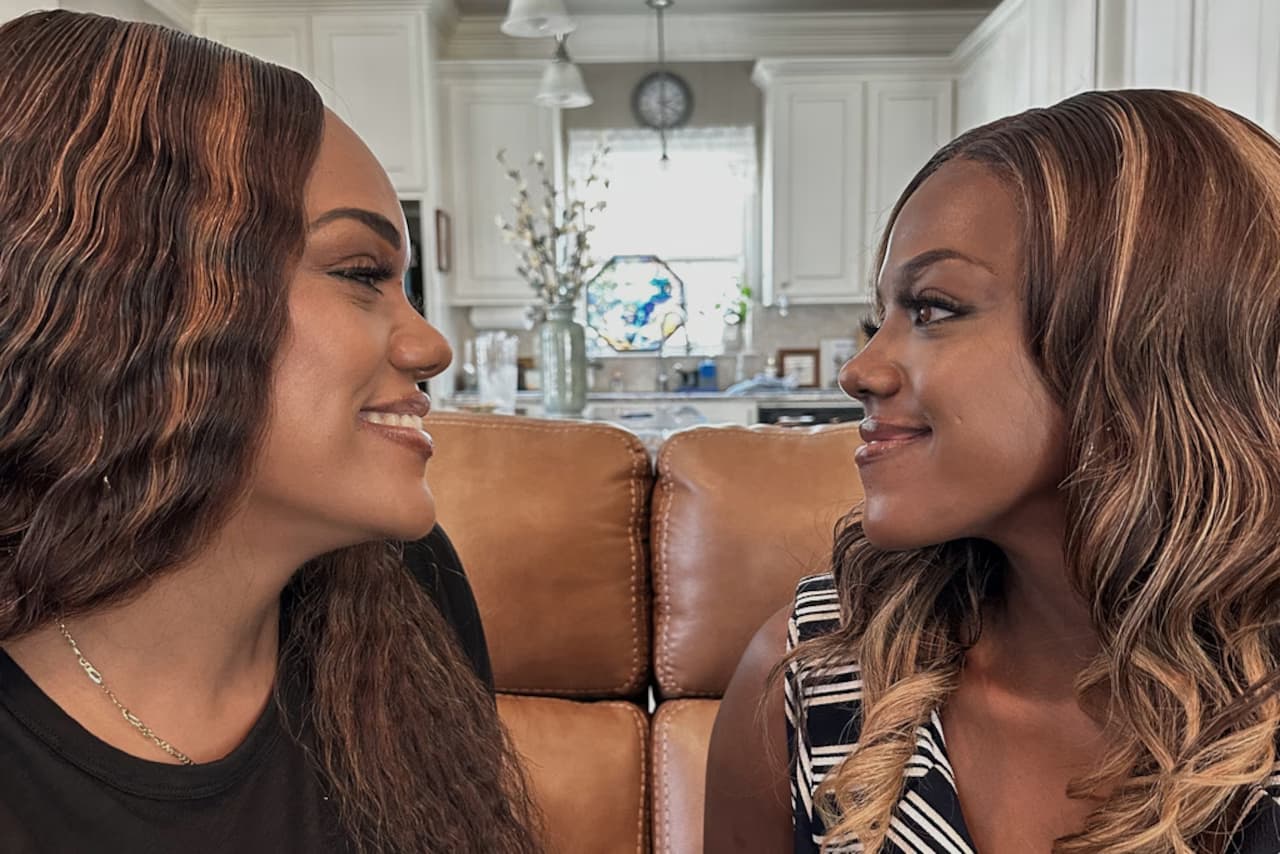
In a story of grit, love, and second chances, a mother and daughter crossed the graduation stage together this spring—just two years after one saved the other’s life.
Ambrealle Brown, 34, dreamed of becoming a nurse. But that dream came to a halt in 2016 when she was diagnosed with Focal Segmental Glomerulosclerosis (FSGS), a rare and progressive kidney disease that forced her to leave school and rely on daily dialysis treatments lasting up to 13 hours.
As her condition worsened, Brown’s optimism faded. She was exhausted—physically and emotionally. The long wait for a transplant weighed heavily on her, and hope felt increasingly out of reach.
But her mother, Nija Butler, wasn’t ready to let her daughter give up. Although doctors initially said she likely wasn’t a donor match, Butler quietly went in for testing. She didn’t tell her daughter—she didn’t want to raise hopes unless it was certain. Then came the call: Brown had a match.
“She told me she was getting a kidney,” Butler recalled. “And I told her, ‘It’s me.’”
In March 2023, surgeons at Tulane University performed Louisiana’s first-ever robotic kidney transplant, using a minimally invasive technique that helped speed recovery for both women. With her new kidney and a renewed lease on life, Brown returned to nursing school. Inspired by her daughter’s determination, Butler decided to join her.
For the next 16 months, they studied side by side, pushing each other through the grueling demands of their program at Baton Rouge General School of Nursing. And in April, they both graduated—together.
“I couldn’t have done it without her,” Brown said. “Nursing school is hard, and having her by my side made all the difference.”
Brown is now set to begin work in a burns intensive care unit. Butler, 48, will continue her work in psychiatric care.
The two women hope their story encourages others to never lose hope—and to consider the lifesaving power of organ donation.
“As parents, we always say we’d do anything for our children,” Butler said. “And I meant it—with all my heart.”
Amazing
Scientists Reveal ‘Olo’: A Never-Before-Seen Color Created with Precision Laser Tech

In a stunning leap forward for vision science, researchers have unveiled a color no human has ever seen before. The new hue—named olo—is described as an intensely saturated blue-green that falls outside the boundaries of the natural human color spectrum.
Published in Science Advances, the study comes from a collaboration between scientists at the University of California, Berkeley, and the University of Washington. At the heart of the discovery is a new experimental tool dubbed Oz, a laser-based system that allows researchers to stimulate individual photoreceptors in the human retina with unprecedented precision.
“The Oz system represents a new experimental platform in vision science,” the study states. It works by isolating and activating just one type of cone cell—specifically, the M cones responsible for detecting green light—while bypassing the other two (S and L cones, which are sensitive to blue and red light, respectively). This kind of targeted stimulation isn’t possible under natural viewing conditions, where any light usually activates multiple types of cones at once.
In controlled experiments using laser light directed into the eyes of five participants—all with normal color vision—scientists were able to generate a perceptual experience unlike anything in nature. By activating only the M cones, participants reported seeing a blue-green shade that felt completely novel and extraordinarily vivid.
“By activating only the M cones, we elicited a color beyond the natural human gamut,” the researchers wrote. They described olo as a color of “unprecedented saturation.”
This discovery doesn’t just expand our understanding of color—it could also have practical implications. The Oz platform may pave the way for more advanced research into visual processing, new treatments or diagnostic tools for color blindness, and potentially even new types of displays capable of showing colors previously thought impossible to reproduce.
As the study concludes, “This new class of programmable platform will enable diverse new experiments,” including deeper exploration into how flexible and adaptable human color perception really is.
With olo, the boundaries of the visible world just got a little wider.
Amazing
From Wheels to Wonder: Paralysed Skater Transforms Old Boards into Bold Sculptures

When Nick Harding lost the ability to skateboard, he never imagined he’d find a new way to stay connected to his lifelong passion — through art.
In 2019, Nick was suddenly paralysed by Guillain-Barré syndrome (GBS), a rare auto-immune condition where the immune system attacks the nervous system. What started as a sore hamstring quickly escalated into a medical emergency. Within an hour of arriving at the hospital, he was on life support. He spent 13 weeks in intensive care at Southmead Hospital in Bristol and seven months in recovery, relearning how to walk and use his arms.
“Skating has always been a huge part of my life,” Nick said. “Having an outlet for that desire to play with my favourite toy is what brought the sculptures about.”
With his old decks stacked in a corner and his body still rebuilding strength, Nick began experimenting. His early attempts to make practical items were shaky — his hands lacked coordination — so instead, he focused on creating something beautiful. With no prior carpentry experience, he turned to YouTube tutorials, teaching himself to shape, sand, and finish colorful, psychedelic forms from the layered wood of worn-out skateboards.
The process helped rebuild his dexterity, but it also served as a mental anchor. “I just focused on doing a little bit every day,” he said. “It was the process that felt good when I was at my lowest.”
Now, Nick sells his sculptures through his Etsy shop Mobius Maples and has gained fans from around the world. His pieces — all carved from donated, broken, or retired boards — are abstract, swirling forms that capture the movement and spirit of skateboarding.
But for Nick, it’s not just about the art or even the recovery. It’s about staying connected to the Bristol skate scene that shaped him. He donates pieces to skate competitions and charity auctions and even hides small keychains around the city for his Instagram followers to find.
“It wouldn’t be anything if it was just me,” he said. “It’s also people who give me their old boards. Interacting with the art and letting me be involved with things is what’s kept it going.”
“I want it to be something that adds to the community, and I’m so grateful that I still have the opportunity to do that.”
Through creativity, community, and resilience, Nick Harding has transformed adversity into something both healing and inspiring — turning the boards that once carried him across pavement into lasting works of art.
Amazing
Community Petition Saves Wally the Beaver from Euthanasia
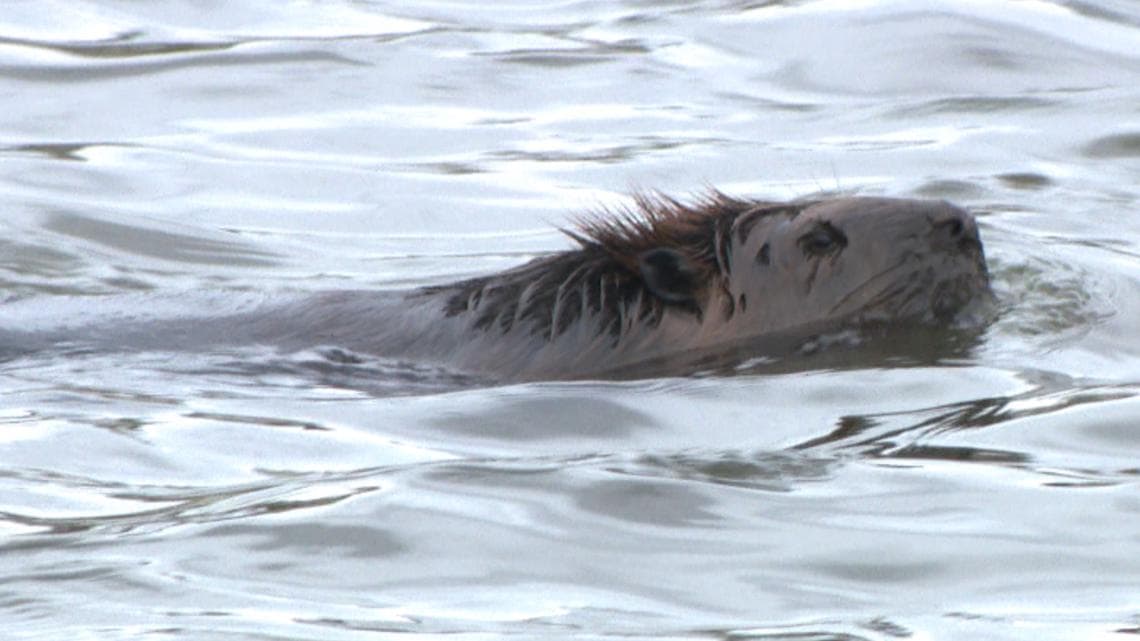
Wally, a beloved beaver who became a community favorite in Northern Virginia, was saved from euthanasia thanks to the efforts of thousands of supporters who rallied together through an online petition.
Wally first gained popularity at Huntley Meadows Park in Fairfax County, where locals and visitors often saw him hard at work building dams. However, wildlife officials considered euthanizing him after concerns arose over flooding and tree damage caused by his dam-building activities.
The community swiftly stepped in, launching a petition that quickly gathered over 10,000 signatures. Advocates argued that the beaver’s positive impact on the ecosystem—creating wetlands and habitats for other wildlife—far outweighed any inconveniences.
Local officials eventually agreed, opting instead for a humane relocation effort. Wally will now be safely moved to a suitable habitat rather than being euthanized.
“This shows how much our community values wildlife,” said Julie Ames, the petition’s creator. “We’re thrilled our voices were heard.”
Residents celebrated the decision, highlighting how Wally’s survival symbolizes the growing awareness of peaceful coexistence with local wildlife.
Amazing
Third Eaglet Joins Big Bear’s Beloved Bald Eagle Family
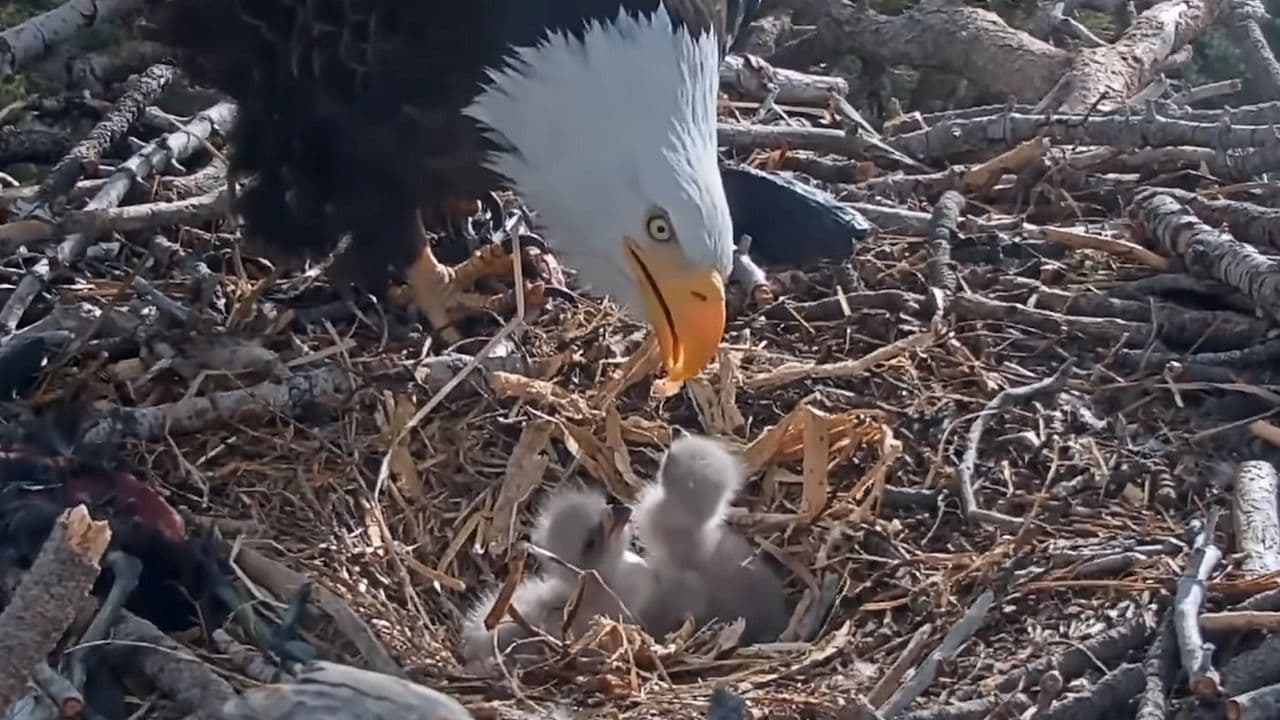
A third eaglet hatched yesterday in the much-loved bald eagle nest near Big Bear Lake, marking a delightful moment for the growing number of wildlife enthusiasts who have been closely watching the family online.
The nest, located in the San Bernardino National Forest near Big Bear, California, has been streaming live via the Friends of Big Bear Valley eagle cam. Observers were excited to witness the third chick hatch, a significant event considering that bald eagles usually lay two eggs, with three being somewhat unusual.
The parents, affectionately named Jackie and Shadow, are local celebrities among bird watchers. According to the Friends of Big Bear Valley, these parents have gained fame for their caring behavior, ensuring their chicks remain healthy and thriving despite the occasional harsh weather conditions.
“The hatch was smooth and perfectly timed,” said Sandy Steers, executive director of Friends of Big Bear Valley. “It’s heartwarming to see this family continue to flourish.”
Wildlife experts emphasize the importance of maintaining a respectful distance, reminding the public that the best way to enjoy and protect these birds is by observing remotely via the eagle cam.
Viewers can continue to monitor the eaglets’ development, celebrating each milestone as the chicks grow into young eagles over the coming weeks.
-

 OMG7 years ago
OMG7 years agoA Couple Gave Birth to the Most Beautiful Twins Ever
-

 OMG8 years ago
OMG8 years ago20 Rare Historical Photos
-
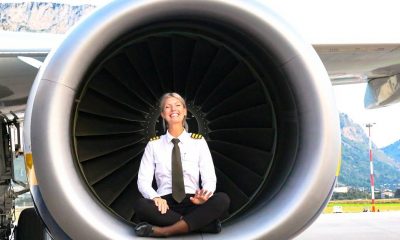
 OMG7 years ago
OMG7 years agoHilarious Airport Photos
-

 Cute7 years ago
Cute7 years agoMom Refuses to Let Daughter Eat Sugar and Years Later This is What She Grows Into
-

 OMG7 years ago
OMG7 years agoTop Secret Air Force One Facts That You Never Knew
-
OMG7 years ago
The Funniest Yearbook Photos Of All Time
-

 OMG7 years ago
OMG7 years agoRetired Mathematician Restores Log Cabin
-

 OMG6 years ago
OMG6 years agoWhat Happened When This ‘Duck Dynasty’ Legend Chopped Off His Beard?